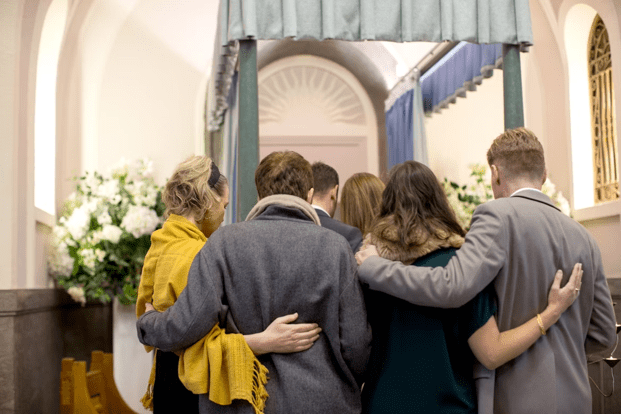Arranging a funeral can be one of the most challenging tasks a person might face during a time of grief. Understanding the necessary details and steps can ease the burden of planning, ensuring that the service honors the deceased’s life appropriately. From choosing the right service type to understanding the significance of personalization, attention to detail can make all the difference when it comes to commemorating a loved one.
Choosing the Right Type of Funeral
The first step in arranging a funeral is deciding on the type of service that aligns with the wishes of the deceased and the expectations of the family. This can range from traditional religious ceremonies to more modern celebrations of life. Consideration of the deceased’s preferences, family traditions, and even financial constraints will help steer this decision. An important factor is the location of the service, whether it will be held in a funeral home, a church, or a different meaningful location.
Another critical aspect is selecting between burial and cremation. Each option comes with its own set of rituals and considerations. Traditional burials often involve a viewing and a service at the gravesite. Meanwhile, cremation may allow for a unique memorial service where families might choose to scatter the ashes in a significant location. The team behind Boza & Roel Funeral Home & Cremation says that discussing these options with family members will lead to a more meaningful experience and help in making a well-informed decision. Personal touches can play an important role in shaping the type of funeral. Families may incorporate favorite music, readings, or symbolic rituals that honor the individuality of their loved one. Some choose to include video tributes or photo displays that highlight cherished memories.
Personalization of the Service
Personalizing a funeral service is important, as it reflects the life and personality of the individual being honored. This might include incorporating favorite colors, music, or even hobbies into the ceremony. Such elements allow attendees to better connect with the memory of the person lost, often leading to an emotionally richer experience. Including photos, decor, and personal stories can further enrich the service, bringing a more intimate and heartfelt interpretation of their life.
It can be beneficial to involve close friends or family members in planning the service. Their contributions can bring diverse perspectives on how to celebrate the deceased’s life while adding personal touches that truly define the individual. The involvement of loved ones turns the planning process into a supportive activity rather than a burden.
Understanding Legal Considerations
When arranging a funeral, there are several legal aspects to take into consideration. It is important to have a clear understanding of the deceased’s wishes regarding their final arrangements and whether those wishes were documented legally. Having power of attorney or a will that specifies funeral plans can significantly ease the process, reducing potential conflicts among family members.
Regulations regarding burial, cremation, and embalming can vary by location. Some states may require specific permits before proceeding with cremation. Understanding these legalities ensures compliance and helps the family avoid unnecessary stress during an already difficult time. Consulting with professionals who are knowledgeable about local regulations can provide clarity and alleviate concerns.
The Role of Funeral Directors
Funeral directors play a key role in the funeral planning process, serving as a guide and resource for families. Their expertise can help navigate the complexities of arranging a service that respects the wishes of the deceased and supports family needs. They can handle logistical aspects such as transportation, paperwork, and coordination with cemeteries or crematoriums.
A good funeral director can offer compassionate support. They understand that losing a loved one is a profoundly emotional experience, and their sensitivity can make the planning process easier. This professional support allows family members to focus on grieving while entrusting the practical arrangements to someone skilled in this area.
Managing Financial Expectations
Funeral expenses can add up quickly, so it is important to manage financial expectations from the outset. Open and honest discussions about budgets with family members can help establish guidelines for what is feasible. Funeral homes typically offer a range of services at differing price points, which can include everything from basic services to premium options complete with extensive personalization.
Inquiring about costs upfront and understanding what is included in each service can prevent unexpected expenses later on. Families may wish to explore funeral insurance or pre-need arrangements that address costs ahead of time. This proactive approach can ease the financial burden during a time when emotions run high, allowing for a focus on honoring the deceased in a way that feels right.
Arranging a respectful funeral is a gesture of love and respect for a life lived. By focusing on important details such as the type of service, personalization, legal obligations, the guidance of funeral directors, and financial considerations, families can create a meaningful tribute that resonates with everyone involved. Thoughtful arrangements reflect the wishes of the deceased and offer comfort to those remaining behind.
Read More From Techbullion






























